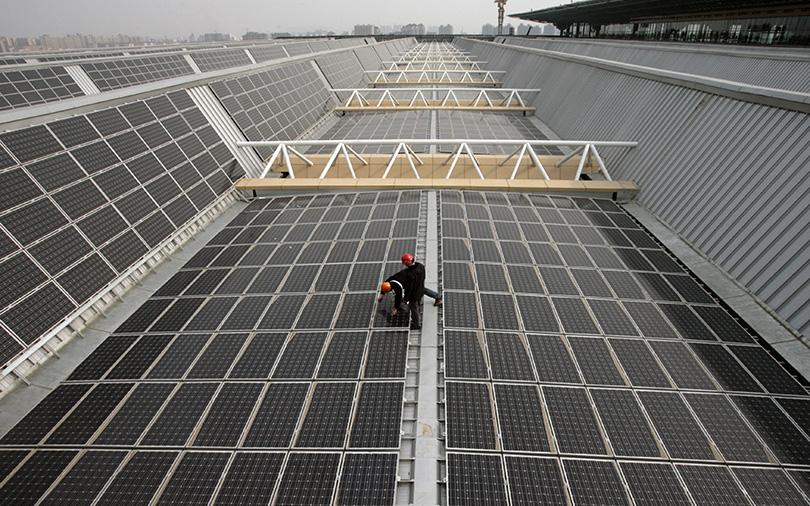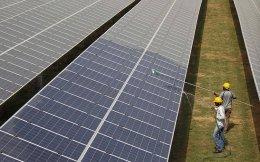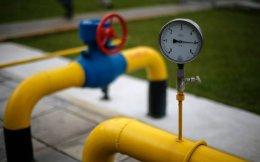KKR’ Virescent Renewable Energy Trust (VRET), India’s first renewable energy infrastructure investment trust (InvIT) has raised Rs2150 crore of debt from listed non-convertible debentures (NCDs), long term debt financing and through working capital.
VRET has raised Rs1000 crore through NCDs in the first ever issuance by an Indian renewable energy InvIT and another Rs1000 crore from L&T Finance, Virescent Infrastructure said.
This comes in the backdrop of VRET raising $62 million from a group of investors led by Alberta Investment Management Corp. Virescent has a present installed capacity of 394 megawatt (MW) from nine operational projects and is looking at acquisitions to ramp up its portfolio.
“Virescent Renewable Energy Trust (VRET) raised INR 1000 crore in its debut issuance across 3, 5 and 7 year tranches. This transaction marks the first ever issuance by a Renewable Energy InvIT in India thereby establishing a new yield curve. The company will primarily use the proceeds to refinance existing debt at the SPV (special purpose vehicle) level as well as fund future acquisitions,” the statement said.
InvITs manage income-generating infrastructure assets, typically offering investors a regular yield and a liquid method of investing in infrastructure projects. The union budget presented earlier this year announced exempting dividend payments made to real estate investment trusts (REIT) and InvITs from TDS and enabling debt financing of InvITs and REITs by foreign portfolio investors.
“VRET has also tied up an additional INR 1,000 crore of long-term financing from L&T Finance. This ensures complete debt tie-up for VRETs immediate near-term acquisition pipeline. Further, VRET has availed a working capital facility of INR 150 crore from Tata Capital to enhance its liquidity position and meet its credit rating requirements,” the statement said.
There is a growing interest in Indian green energy InvITs, amid growing focus on environmental, social and governance (ESG) investing. The investors’ interest in India’s green energy space also stems from the government’s proposal of a minimum share of renewable energy in the overall consumption by an industrial unit or an establishment. This assumes significance given that of India’s total electricity demand load pattern, industrial load is the largest and accounts for 41.16%.
Also, in an attempt to soothe investor concerns in the midst of a logjam over contracts with Punjab, Gujarat and Andhra Pradesh, the union government has notified rules for ensuring “timely recovery of costs due to change in law.”
“This incredible achievement is an important milestone in VRET’s journey, demonstrating our debt fund raising capabilities at competitive pricing with different instruments and maturity profiles and reposes the faith of lenders in VRET. We look forward to working closely with our lenders as we continue to acquire high-quality assets for achieving our initial growth targets,” Sanjay Grewal, chief executive officer, Virescent Infrastructure said in the statement.
Virescent was set up by KKR in October 2020 to acquire operating renewable energy assets in India. Some of the other clean energy platforms in India backed by private equity investors include Actis Llp’ Sprng Energy and European alternative asset manager EQT and Singapore’s state investment firm Temasek Holdings Pte.’s O2 Power.
“We are extremely happy to raise debt in a timely manner at competitive rates. With this fund raise, all our debt will be at the InvIT level, thereby enhancing our overall capital structure. We not only have refinanced our existing debt but also have debt in place for our next set of acquisitions,” Parin Mehta, chief financial officer, Virescent Infrastructure said in the statement.
At COP-26 summit in Glasgow, India announced its plans to increase non-fossil fuel power generation capacity to 500 GW by 2030. India’s non-fossil fuel based capacity is on-track to surpass the earlier 40% target under its nationally determined contribution (NDC). According to the government, India has already reached 38.5% of its installed power capacity from non-fossil fuels and this will go upto 66% by 2030. Also, India has already reached an emission reduction of 28%.
According to the Central Electricity Authority, by 2030, the country’s power requirement would be 817GW, more than half of which would be clean energy, and 280GW would be from solar energy alone.






